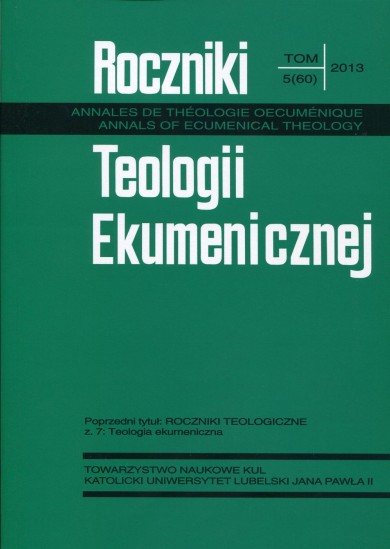Znaczenie Synodu w Dordrechcie dla rozwoju kalwinizmu w Holandii
THE IMPORTANCE OF THE SYNOD IN DORDRECHT FOR THE DEVELOPMENT OF CALVINISM IN NETHERLANDS
Author(s): Antoni NadbrzeżnySubject(s): Christian Theology and Religion
Published by: Katolicki Uniwersytet Lubelski Jana Pawła II - Wydział Teologii
Keywords: REFORMED CHURCHŁ ARMINIANISMŁ CANONS OF DORDRECHT; UNCONDITIONAL ELECTION; FREE WILL; GRACE OF GOD
Summary/Abstract: This paper focuses on the meaning of the National Synod of Dordrecht (1618-1619) for the history of Calvinism in the Netherlands. The author broadly presents its historical and theological backgrounds and examines the factors that caused this Ecclesiastical Gathering. The National Synod in Dordrecht was held in order to settle a serious controversy in the Dutch churches initiated by the rise of Arminianism. The Arminians (Remonstrants) taught election on the basis of foreseen faith, a universal atonement, resistible grace, and the possibility of lapse from grace. The Synod concluded with a rejection of these views, and set forth the Reformed doctrine on each point, namely: total depravity, unconditional election, limited atonement, irresistible grace, and the perseverance of the saints. One more result of the synod’s work was the decision to authorize a new translation of the Bible from the original languages. The new Dutch translation was first published in 1637 and it became known as State Translation (Statenvertaling). It has had an enormous influence in the formation of the Dutch language and the church unity. The National Synod of Dordrecht was absolutely a high point in the early history of the Reformed Church and with it, the Calvinism orthodoxy has been finally established.
Journal: Roczniki Teologii Ekumenicznej
- Issue Year: 2010
- Issue No: 2 (57)
- Page Range: 123-132
- Page Count: 10
- Language: Polish

